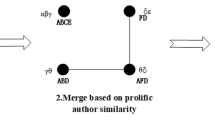Abstract
The successful evolution of a negotiated learning practice in software engineering team projects is described. The background to negotiated learning practices is reviewed and it is noted that a concern for process issues might be related to software quality management concerns. Negotiated learning was used to develop learning autonomy and to encourage process improvement. The integration of learning contracts and existing software engineering quality management techniques has produced an approach which has enabled teams of students to effectively define and reflect on systems development and learning processes. Individual assessment was enhanced by including processes for the visibility and traceability of contributions in the negotiation process. The gradual evolution of the practice is described with some detail of the current context provided. Evaluations have indicated that teams can become more actively engaged in learning and develop reflective skills in a structured manner by exploiting mechanisms for negotiation.
Similar content being viewed by others
References
Amsden, S. (1970), “Have you Tried Contracting for Grades,” English Journal 59, 3, 1279–1282.
Biedenbach, J.M., Ed. (1972), IEEE Transactions on Education 15, 2, Special Issue on Continuing Education.
Birtle, M. (1992), “Process Modelling in Software Engineering Team Projects at Teesside Polytechnic,” In Proceedings of the 5th U.K. Conference on Information Systems Teaching: Improving the Practice, Association for Information Technology, London, UK, pp. 83–88.
Birtle, M. (1994), “Contract Learning in Software Engineering Team Projects,” In Proceedings of the IEEE International Workshop on Software Engineering Education, Sorrento, IEEE Computer Society Press, Los Alamitos, CA, pp. 71–80.
Birtle, M. (1996), “Developing Learner Autonomy and Process Improvement in Software Engineering Team Projects,” PhD dissertion, Lancaster University, UK.
Boud, D., Ed. (1981), Developing Student Autonomy in Learning, Kogan Page Ltd., London, UK.
Boud, D., G. Anderson and J. Sampson (1994), “Improving the Use of Learning Contracts,” In Proceedings of the National Teaching Workshop, Australian National University, Canberra, Australia, pp. 120–127.
Brown, S. and D. Baume, Eds. (1992a), Learning Contracts, Vol. 1: A Theoretical Perspective, Standing Conference on Educational Development, Paper No. 71, Birmingham, UK.
Brown, S. and D. Baume, Eds. (1992b), Learning Contracts, Vol. 2: Some Practical Examples, Standing Conference on Educational Development, Paper No. 72, Birmingham, UK.
Burgwardt, F.C., Ed. (1976), IEEE Transactions on Education 19, 1, Special Issue on Continuing Education.
Burgwardt, F.C. and J.M. Biedenbach, Eds. (1976), “Education in Industry – Some Approaches to Life-Long Learning,” IEEE Transactions on Education 19, 119–123.
Daily, K. (1992), Quality Management for Software, National Computing Centre, Blackwell, Oxford, UK.
Frymier, J.R. (1966), The Nature of the Educational Method, Charles E. Merrill Publishing Co., Columbus, OH.
Glasgow, J. (1967), “Performance of High School Students on Grade Contracts,” Unpublished thesis, Ohio State University.
Hunter, R.B. (1988), “An Industrial Course in SQA,” In Proceedings of Software Engineering Education Conference, Springer Verlag, London, UK, pp. 45–54.
Jacques, D. (1985), “Learning in Groups,” Croom Helm Ltd., London, UK, 1985.
Joel, W.J. (1987), “Realistic Student Projects,” Bulletin of the Special Interest Group in Computer Science Education 19, 1, 244–247.
Jones, A. and M. Birtle (1989), “An Individual Assessment Technique for Group Projects in Software Engineering,” Software Engineering Journal 4, 4, 226–232.
Knowles, M.S. (1986), Using Learning Contracts, Jossey-Bass, San Francisco.
Mark, M.A. and J.E. Greer (1993), “Evaluation Methodologies for Intelligent Tutoring Systems,” Journal of Artificial Intelligence in Education 4, 2/3, 129–153.
Martin, W.B. (1976), The Negotiated Order of the School, MacMillan, Toronto.
Moore, L.F. and P.R. Purvis (1988), “Meeting the Training Needs of Practising Software Engineers at Texas Instruments,” In Proceedings of Software Engineering Institute Conference on Software Engineering Education, Springer Verlag, London, UK, pp. 32–44.
Paul, V. and M. Shaw (1992), “A Practical Guide to Introducing Contract Learning,” In Standing Conference on Educational Development, Paper No. 71, S. Brown and D. Baume, Eds., Birmingham, UK, pp. 7–21.
Richardson, W.E. (1988), “Undergraduate Software Engineering Education,” In Proceedings of Software Engineering Institute Conference on Software Engineering Education, Springer Verlag, London, UK, pp. 121–144.
Rout, T. (1990), “Quality Assessment in Student Software Projects – An Exercise in Action Learning,” In Proceedings of the Biennial Conference of the Australian Organisation for Quality (QUALCON '90), Australian Organisation for Quality, Adelaide, Australia, pp. 29–34.
Rout, T. (1992), “The Culture of Quality in Software Engineering Education,” Special Interest Group in Computer Science Education 24, 2, 29–34.
Stephenson, J. and M. Laycock, Eds. (1993), Using Learning Contracts in Higher Education, Kogan-Page, London and Philadelphia.
Tompkins, C. and M. McGraw (1988), “The Negotiated Learning Contract,” In Developing Student Autonomy in Learning, 2nd Edition, D. Boud, Ed., Kogan Page Ltd, London, UK, p. 172.
Twidale, M. (1993), “Redressing the Balance: The Advantages of Informal Evaluation Techniques for Intelligent Learning Environments,” Journal of Artificial Intelligence in Education 4, 2/3, 155–178.
Author information
Authors and Affiliations
Rights and permissions
About this article
Cite this article
Birtle, M. Negotiated learning contracts in team projects. Annals of Software Engineering 6, 323–341 (1998). https://doi.org/10.1023/A:1018961516018
Issue Date:
DOI: https://doi.org/10.1023/A:1018961516018




